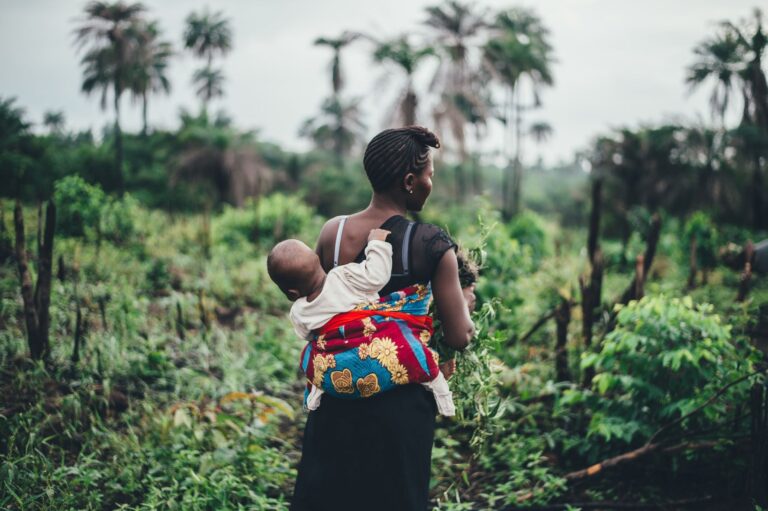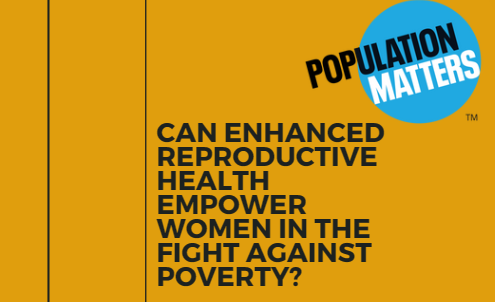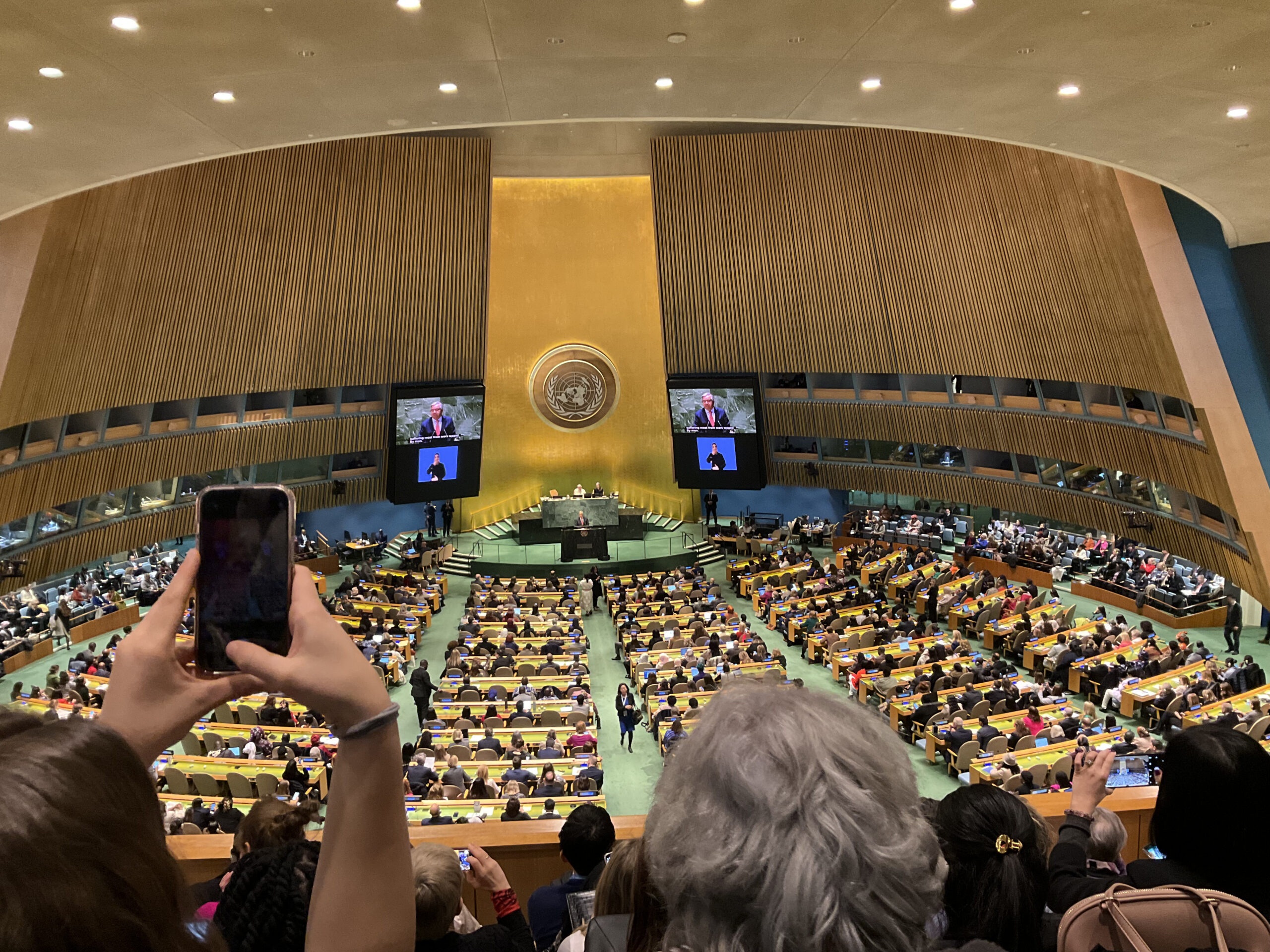
Gender equality by 2030? Not likely
The 68th session of the Commission on the Status of Women (CSW68) ended last week with a call from UN leaders to accelerate poverty eradication by 26 times. They stressed the need for an extra $360 billion annually for a gender-focused stimulus package to achieve gender equality. Population Matters participated in the event for the first time, with our Content and Campaigns Specialist Florence Blondel distributing materials to UN officials and other delegates.
This year, the focus of CSW68 was on the intersection of poverty eradication and financing through a gender lens. At the event’s commencement, Secretary-General of the United Nations, António Guterres, acknowledged the inhibiting role of poverty in hindering the progress of women and girls.
Globally, poverty has a female face, women have less access to land, natural resources and financial assets. They suffer the impacts of climate change more than men, and they are more likely to be food insecure.”
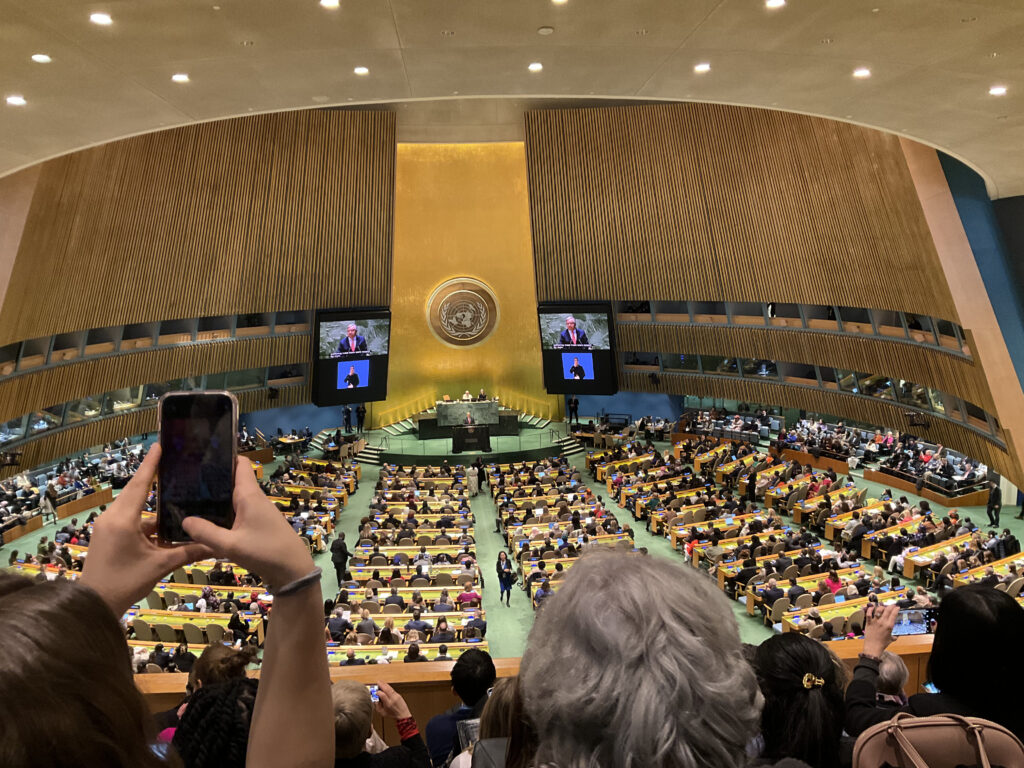
According to UN Women, gender equality has the power to multiply and accelerate the drivers of human progress but “given the current trajectory, the outlook to 2030 is deeply concerning.”
If trends continue over 340 million women and girls will be trapped in extreme poverty by 2030. That’s a far call from no poverty target. Progress, we estimate, must be 26 times faster than the current rate.”
Ginette Azcona, Senior Research and Data Specialist, UN Women
Chronic underfunding
On a global scale, the majority of delegates acknowledged their collective failure to sufficiently invest in women and girls. The President of the General Assembly, Dennis Francis, described the chronic underfunding of gender projects and programs as “perennial”. He noted that while bilateral funding for gender equality is beneficial, it remains inconsistent and inadequate.
To achieve real gender equality in critical sectors, an estimated $6.4 trillion annually is required in 48 developing countries which accounts for nearly 70 percent of the developing world’s population.”
Jess Phillips, the Labour MP for Birmingham Yardley from the UK government said that “warm words are never matched by the resource base”.
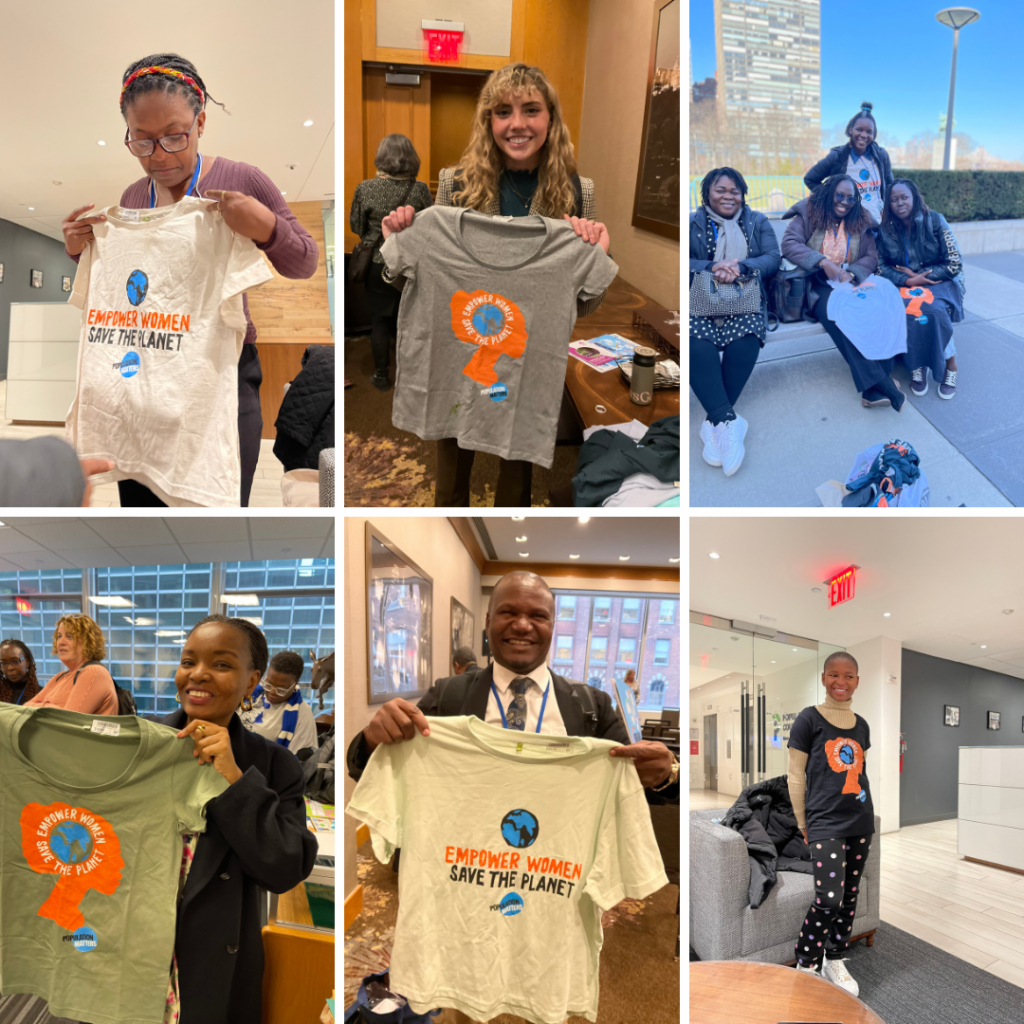
Dr Natalia Kanem, the UNFPA Executive Director made opening remarks at the Equity 2030 Alliance side event, where she acknowledged that while “the financing gap for innovation and research in women’s healthcare is one of our biggest hurdles”, it was also a huge opportunity. I was later able to talk to her briefly, and give her a copy of the Breaking Silos report.
Research is showing that meeting the health needs of the four billion women on the planet, indeed would unlock up to $12 trillion in global economic growth. And at UNFPA, we like to say, if the world today is not designed for women, then redesign it.”
Climate and gender justice
We participated in some sessions addressing the ongoing planetary crisis, particularly focusing on climate change and gender justice. UN Women forecasts that by 2050, this phenomenon will disproportionately impact up to 158 million additional women and girls, exacerbating their vulnerability to poverty. This figure surpasses the total number of men and boys affected by a staggering 16 million.
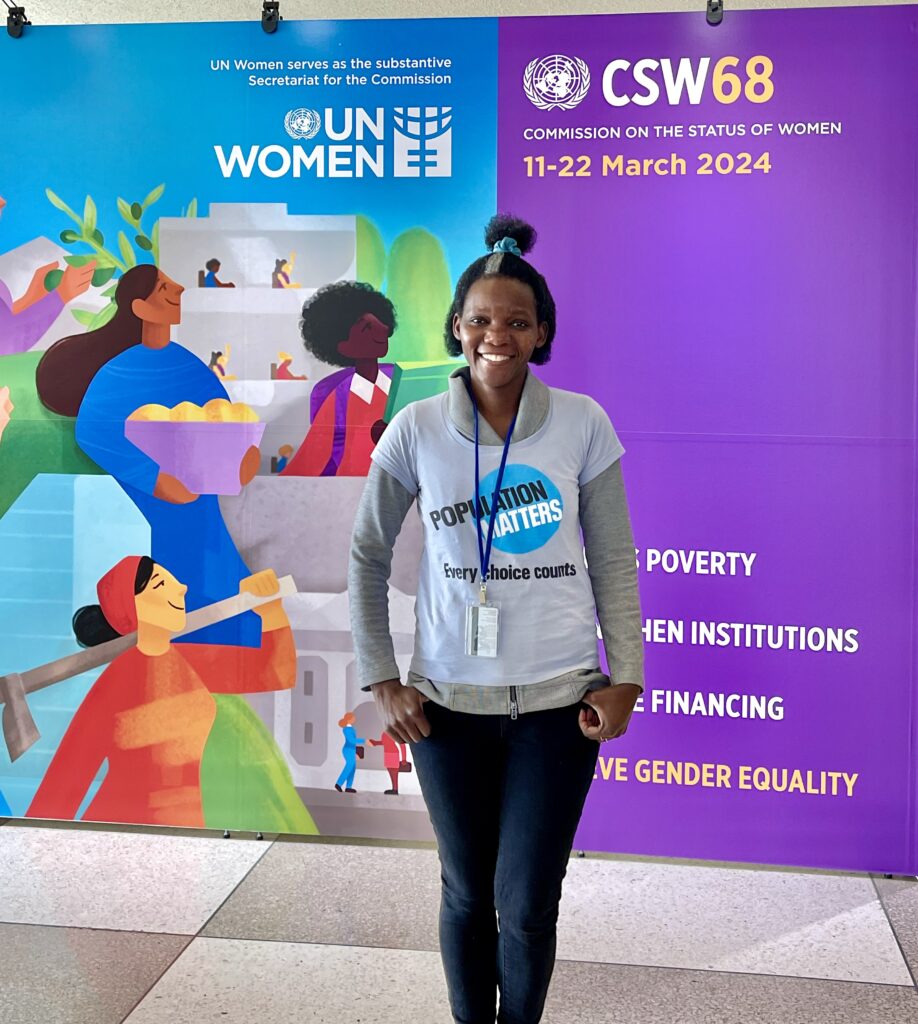
While quoting Project Drawdown’s climate change solutions, I asked how various stakeholders are making the interconnections. Dr Jemimah Njuki, the Chief, Economic Empowerment in UN Women said:
I believe one of the highest expressions of gender justice is the women’s and girls’ ability to control their own bodies and have access to the resources, services that they need for that.”
Maria Wyard, the Head of Women and Girls International Engagement at the Foreign, Commonwealth & Development Office, UK, commented on the issue, noting that the UK Foreign Secretary emphasised a strengthened dedication to promoting sexual and reproductive health and rights (SRHR) globally.
It’s the same people who are climate deniers unbelievably who are denying SRHR and reproductive justice.”
Push back against the push back (AKA the patriarchy)
Some delegates made remarks about the current wave of abuse against women’s SRHR.
The patriarchy is far from vanquished. Autocrats and populists are attacking women’s freedoms and their sexual and reproductive rights. They promote what they call traditional values, and patriarchy is indeed an age-old tradition.”
António Guterres
During a parliamentary session, Gender-sensitive parliaments, a Polish representative shared how far her country has come.
In Poland, due to ideological reasons, contraception is not supported by the state, including emergency contraception. I don’t need to say that that leads young girls to premature parenthood, single motherhood and of course, lesser opportunities for life.”
With the recent change in the political environment in Poland there is hope that policies will change. It is among the countries we are monitoring through our Gilead Watch where we provide updates on relevant developments, including the ways in which governments are using overt or hidden coercive methods to advance their pronatal agendas.
Making connections
CSW68 provided a pivotal platform to disseminate our materials including the Empower Women, Save the Planet t-shirts, the Breaking Silos report, bookmarks and business cards with QR codes, to a diverse audience comprising delegates from various sectors, including prominent figures from the United Nations, Malala Fund, Girls Not Brides, Women Deliver, UK’s FCDO, parliamentarians and other stakeholders.
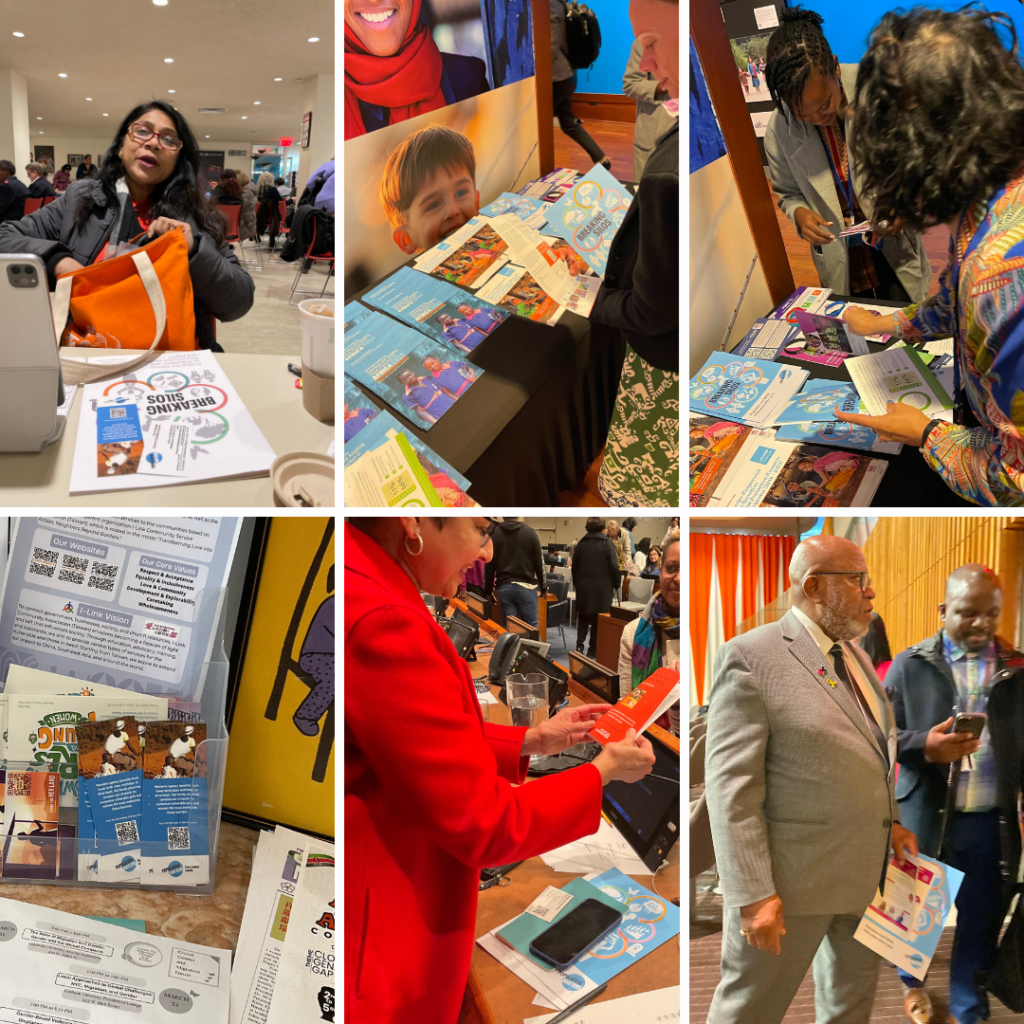
Furthermore, we initiated meaningful face-to-face conversations with delegates including those with a grasp of the intersections between population growth, SRHR and the environment. We met old associates, including Joan Kembabazi, our Choice Ambassador and a friend from Nigeria who helped with the success of our Population Conversation in the country.
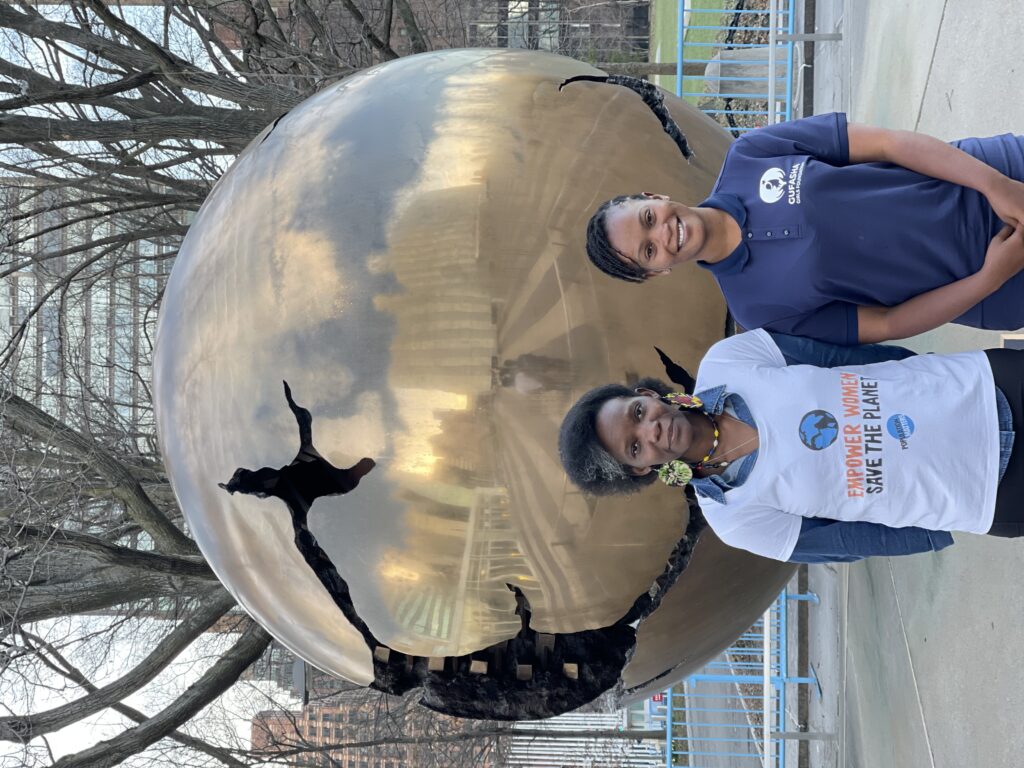
We interacted with a number of young people including a longtime activist, Hadiqa Bashir, the Founder and Executive Director of Girls United for Human Rights. We have already had talks with Hadiqa about working together and, have supported a grassroot project in her country, Pakistan.
Going forward
Persistent resistance and inadequate dedication to gender equality, coupled with chronic underinvestment, are key factors impeding progress, and in certain instances, leading to the regression of previously achieved advancements. It is why we are going to have to wait for 300 years to achieve gender equality unless we act now.
UN Women estimates that “over 100 million women and girls could be lifted out of poverty if governments prioritised education and family planning, fair and equal wages, and expanded social benefits.” PM supports all these solutions and in doing our bit, we hope the connections we have made and continue to make will get us there much faster.

